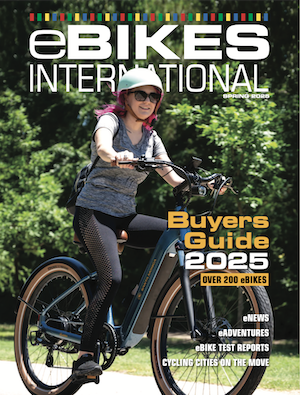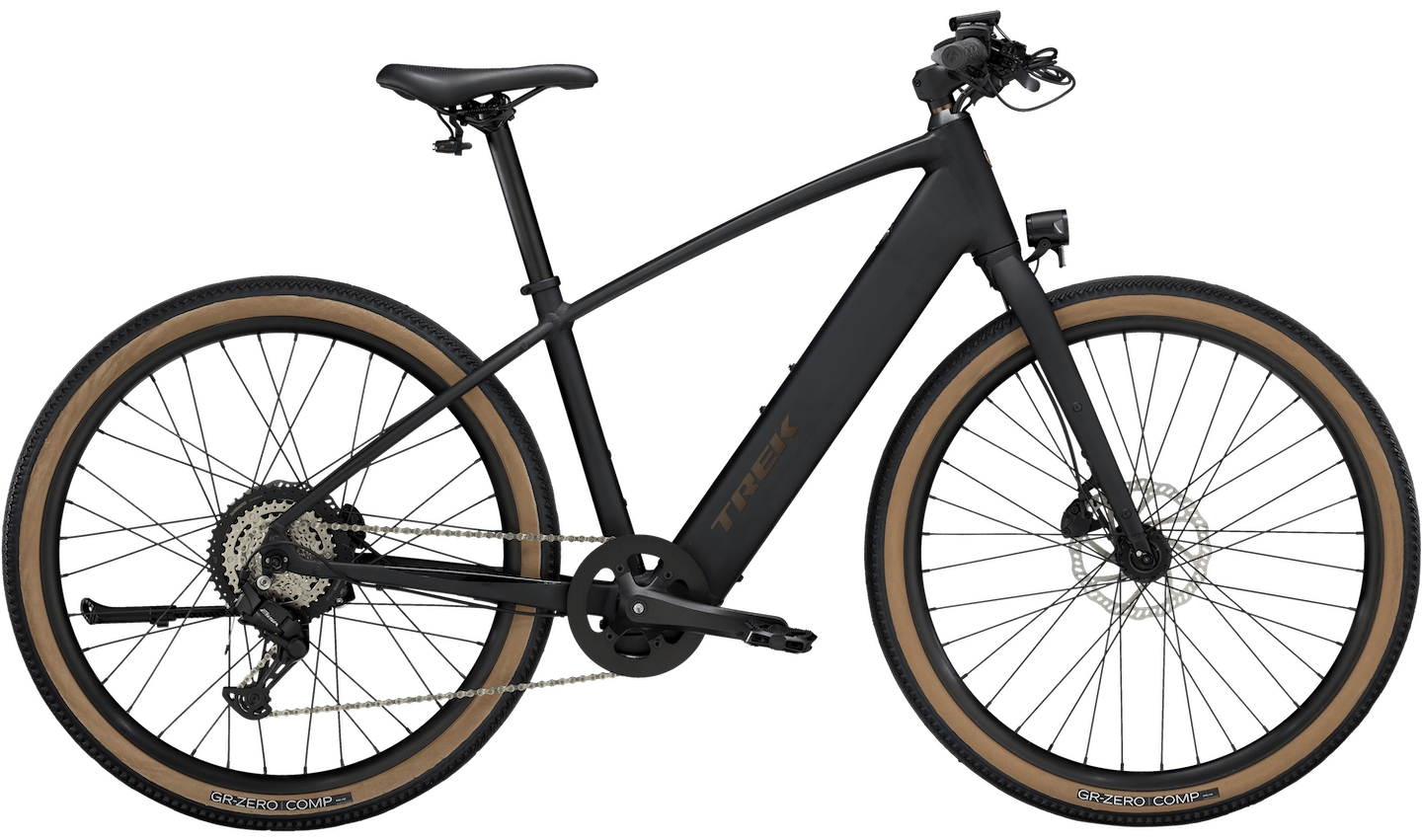December 7, 2023 - Taiwan is a major exporter of bicycles and components to the rest of the globe and the next stops on our media tour took us to two veteran companies both with a rich history in the cycling industry.

As the world faces a decline in bicycle sales Taiwan is not immune and the Ministry of Economic Affairs reports a 21% decrease in overall export value from Jan to Aug 2023 compared to the same period last year.
Yet despite the shortfall, the average unit price went up by 31% with e-bikes being a large contributing factor. The growth in value due to e-bikes also meant an increase in the value of components that contribute to their production.
To showcase this aspect of their technological advances, including developments in environmental areas, the Taipei Cycle show in conjunction with TAITRA (Taiwan External Trade Development Council) organized our global media tour.
Joy Industrial Co., Ltd.
Founded in 1971, Joy Industrial Co., Ltd. has a storied history in the bike industry and operates factories in both Taiwan and China. Better known as Joytech, the company makes hubs and wheels under the brand names of Joytech and Novatec.
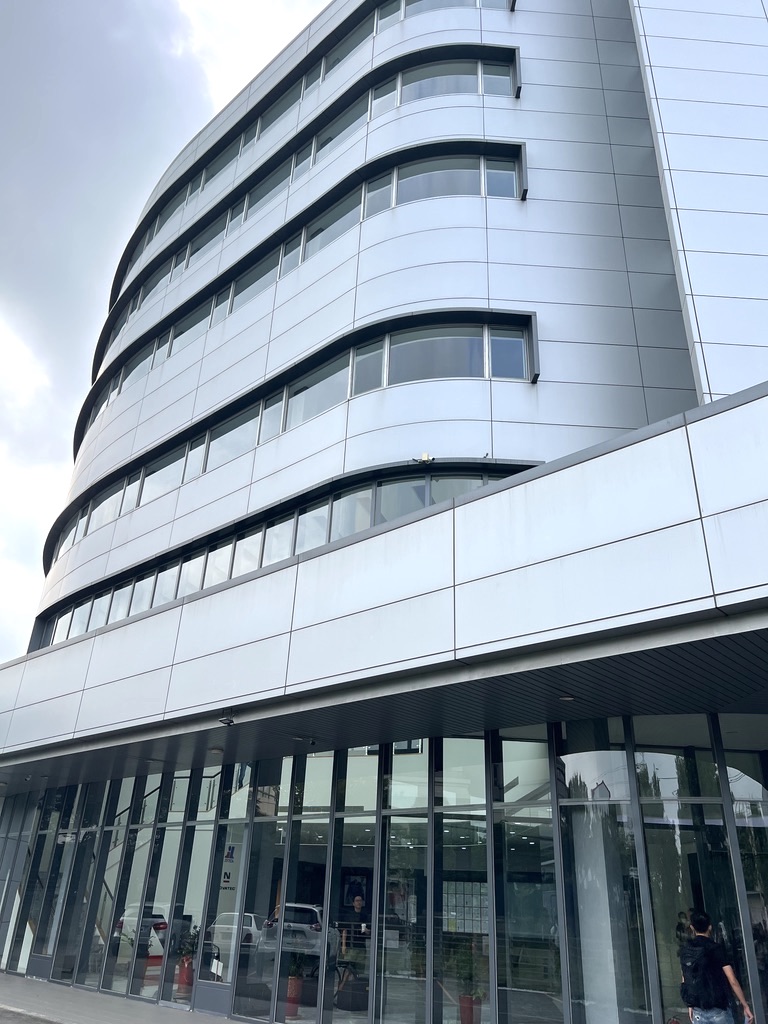
We were fortunate to tour the company’s Taichung headquarters and factory, which they opened in 2019, and where they make hubs and wheelsets.
Joytech recently joined the Bicycle Alliance for Sustainability (BAS), a group of companies which has pledged to reduce carbon emissions and has adopted ESG standards for the bicycle industry. They have also pledged to deliver other environmental initiatives to reduce waste and carbon emissions.
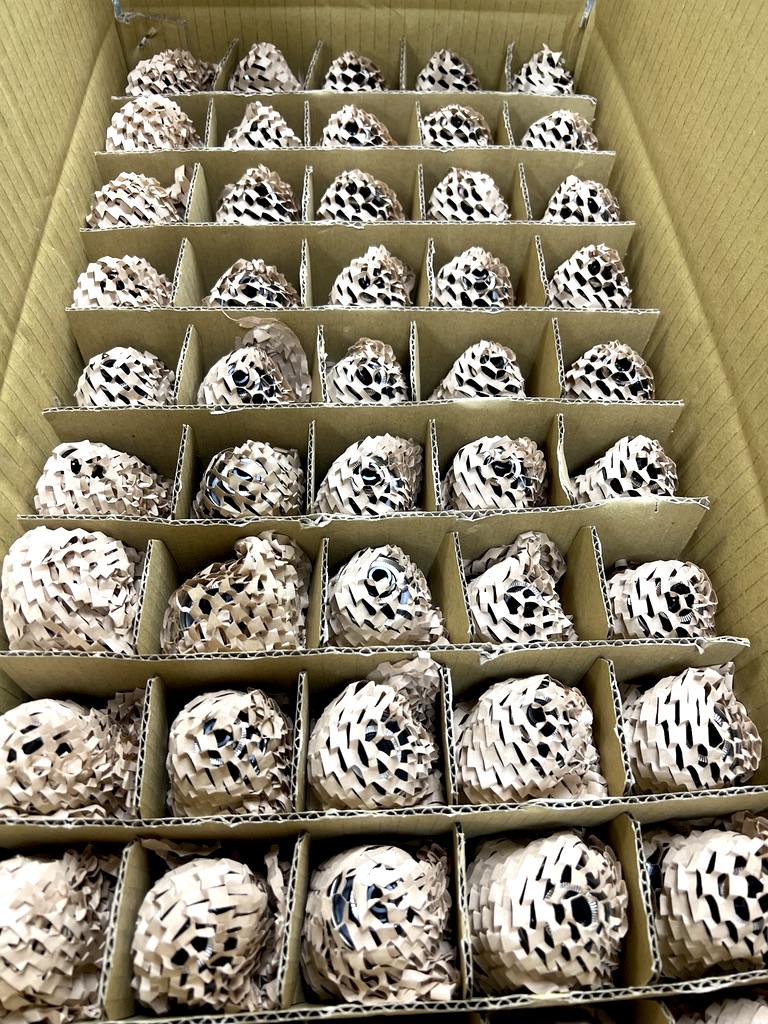
As part of their BAS mandate, Joytech employs an innovative approach to decrease the use of plastic bags by using honeycomb paper to wrap their parts. This not only saves plastic but in addition the honeycomb paper is recyclable to further reduce waste.
Inside the factory they use and reuse plastic totes to move products between stations and do not use staples in their shipping cases, but use glue instead which makes recycling easier.
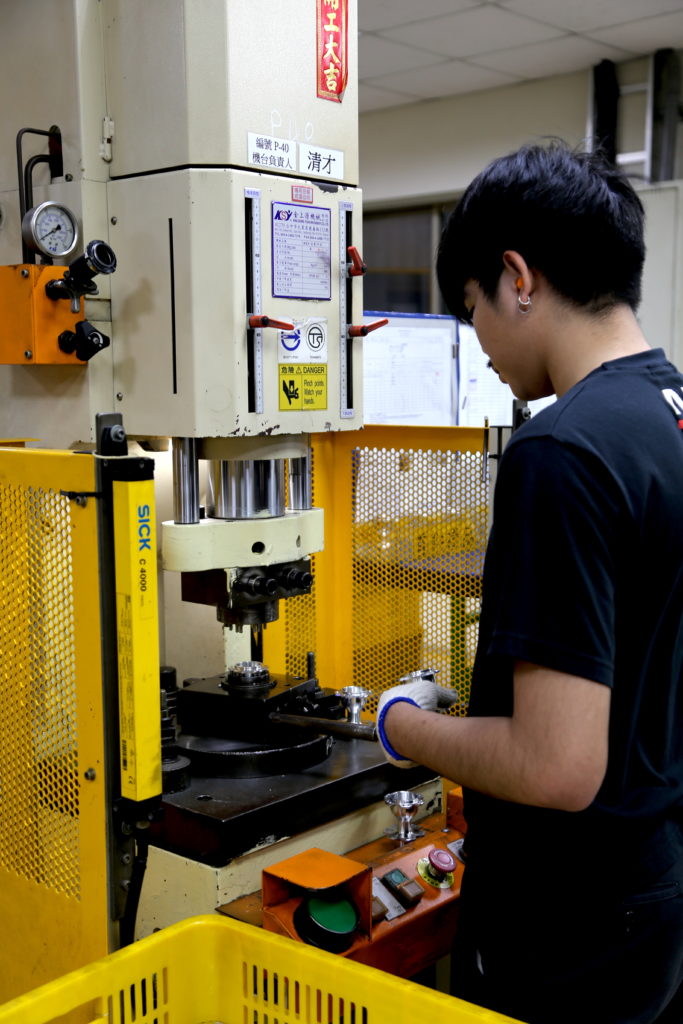
The factory has also made major improvements in recent years to increase efficiency and create a better workplace. They have invested heavily in automation and a robust ERP (enterprise, resource, planning) computer system to make the operation more efficient and track every step of production.
The hub bodies are forged from aluminum billet and moved by robotics to the next steps in the production process. Once they get to the CNC machining stations the proper tooling is delivered to each station making it easier for employees at each station, who can also work with several machines.

Robotics help maintain consistency and are used on the assembly lines that produce the highest volume of their biggest selling items. Once the hubs are anodized, the logo and model information is laser etched on, which replaces stickers thus making the process more environmentally friendly as well.
Their higher-end Novatec line of products include carbon rims and wheels, and a full line-up of road and mountain bike wheelsets.
A total of 4,800 carbon rims are produced monthly, and as part of their recycling initiatives to address any unused carbon fiber, they have teamed up with a manufacturer of carbon wind turbine blades.
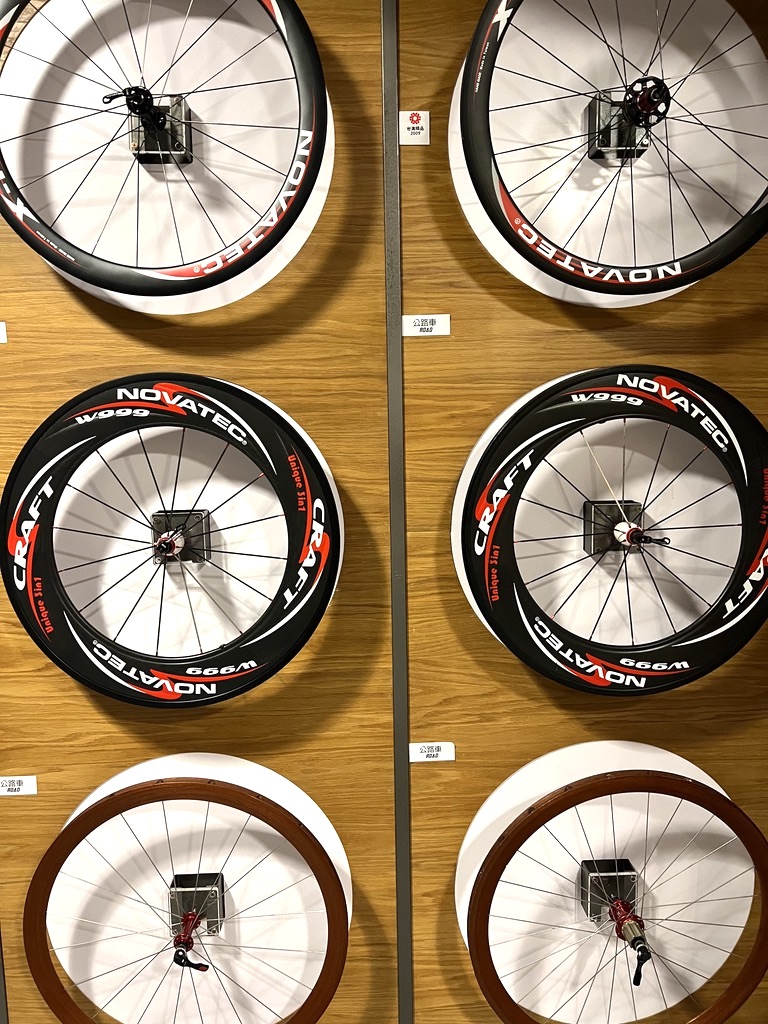
While Joytech is a world leader in the production of wheels and hubs, they also recognize the importance of getting people on bikes. As such, the company offers incentives for staff to ride to work by providing personal carbon credits to enhance their leadership role on the ESG front as well.
Glory Wheel
With over 20 years of experience in the cycling industry, Glory Wheel moved into their new factory this year. Based in Taichung, the country’s second largest city, the new facility boasts state-of-the-art equipment along with environmental strategies to yield as small a carbon footprint as possible.
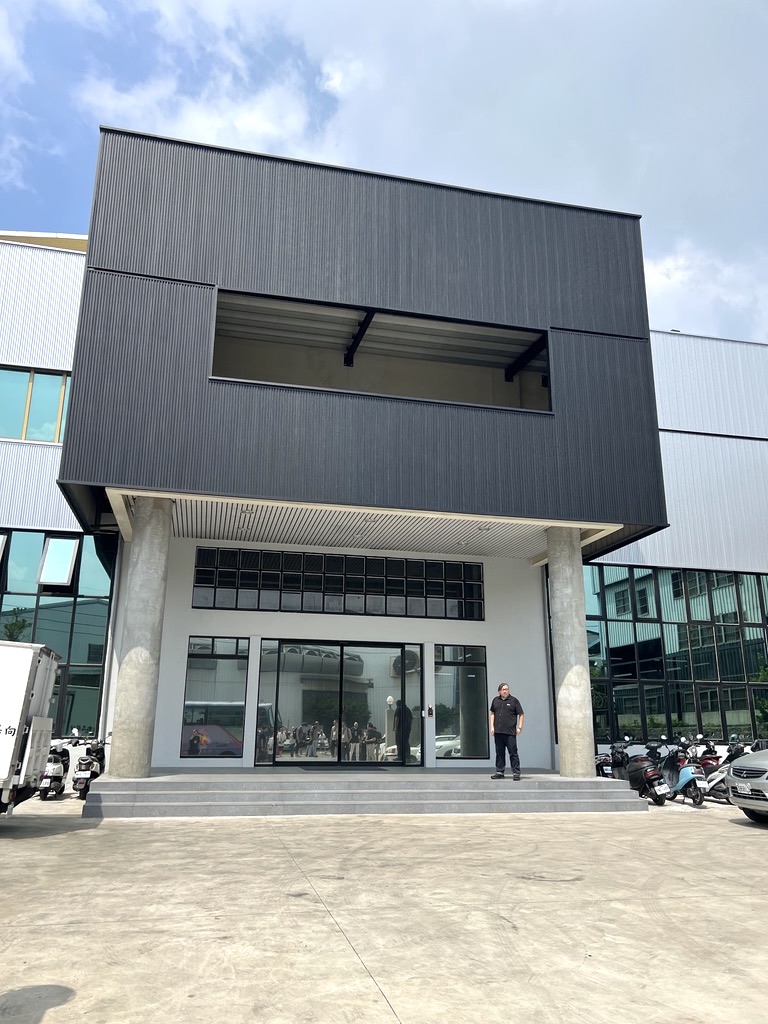
The building itself is clad in recycled aluminum that’s left over from their production processes. They also have solar panels installed on the roof and a heat recovery system that utilizes surplus heat from their CNC machines which is then used in the anodizing process.
The owner of Glory Wheel, Charles Lee, has strong opinions about their environmental initiatives commenting, “screw the profit, let’s do something right”. Lee feels that with the profits that the bicycle industry has made over the past three years, it’s time to reinvest some of that revenue back into “green” improvements.

Glory Wheel has invested $1 million USD in energy saving equipment so far despite sales being down 40% compared to Covid times. The company claims that now is the time to invest in improvements in production, and environmentally friendly systems.
The have refined their in-house anodizing process to make it much more eco-friendly while also achieving 20% energy savings.
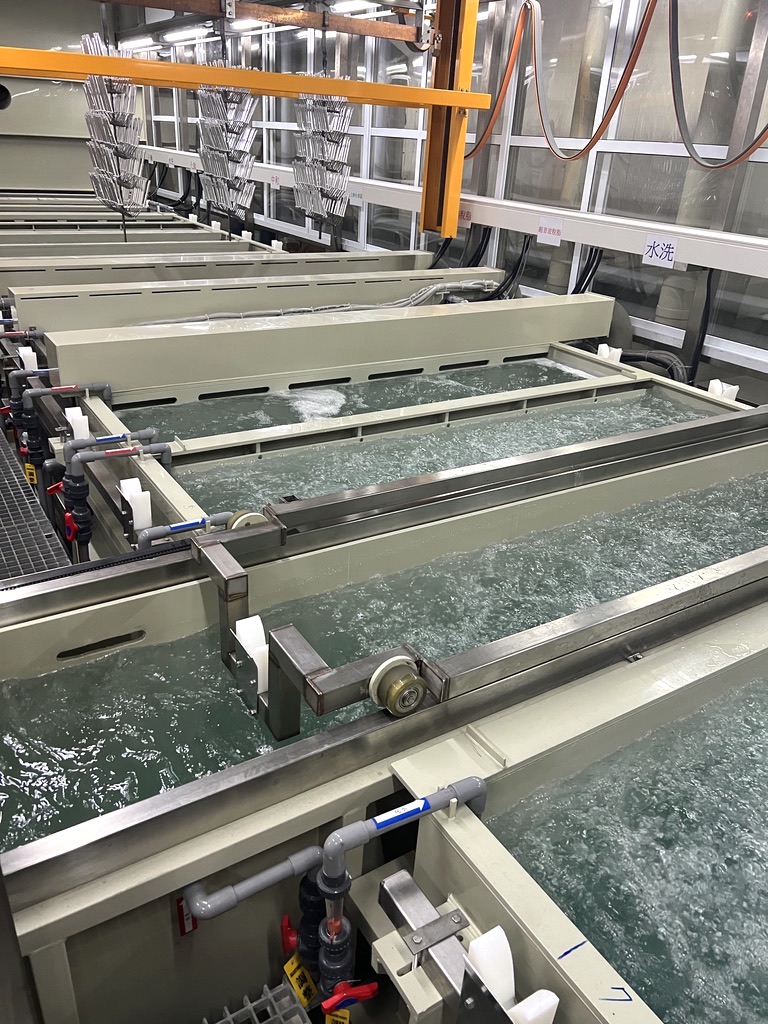
The heat needed to maintain the process at an optimised rate is generated during the CNC machining and captured in the cutting fluid, which is also filtered and reused.
They also recycle the chemicals in the process, and they prefer anodizing which creates a thin layer on the aluminum that can still be recycled, whereas paint has to be removed before the aluminum can be recycled. Paint also requires energy to make, and heat to cure, adding to its negative eco impact.
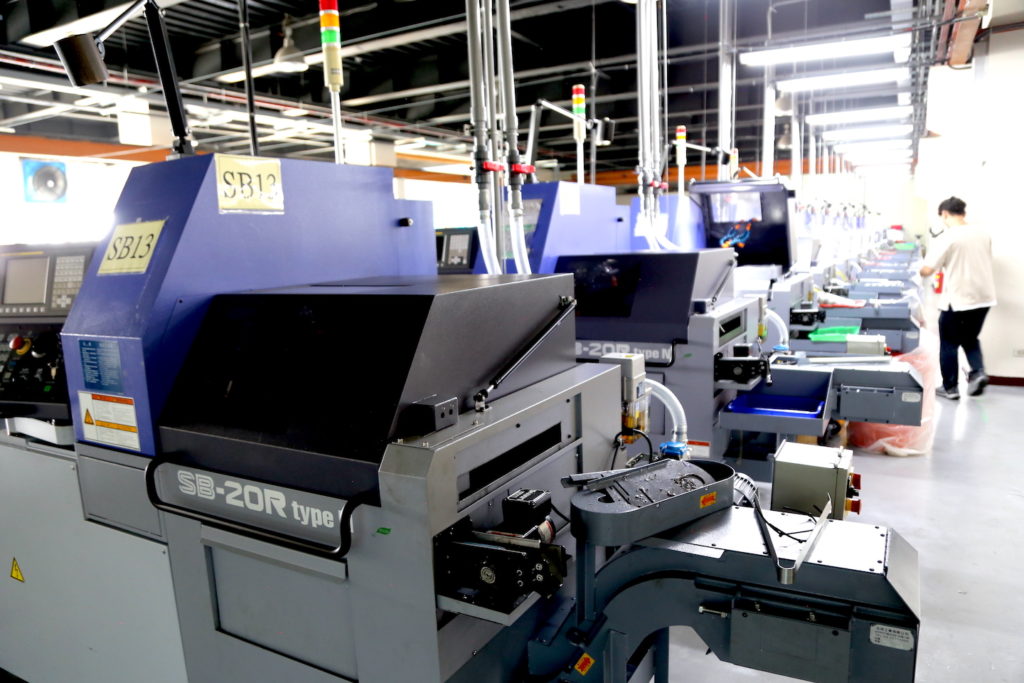
Glory Wheel has also opened a European wheel assembly plant. The focus is to make wheels closer to their European Original Equipment (OE) customers and use Taiwanese-made hubs with Italian made rims and European spokes which reduces transport costs and eliminates import duties. They utiize a similar strategy in their Taiwanese factory for local OEM customers.
While hubs and wheels are a big part of their business, they also run their CNC lines making headsets, seat clamps, bottom brackets, seat posts and through axles.
With most of the major brands as customers, Glory Wheel is a major supplier to the cycling industry. Yet its focus on environmental initiatives, including the construction of its own building, have garnered the company forward-thinking achievements.



